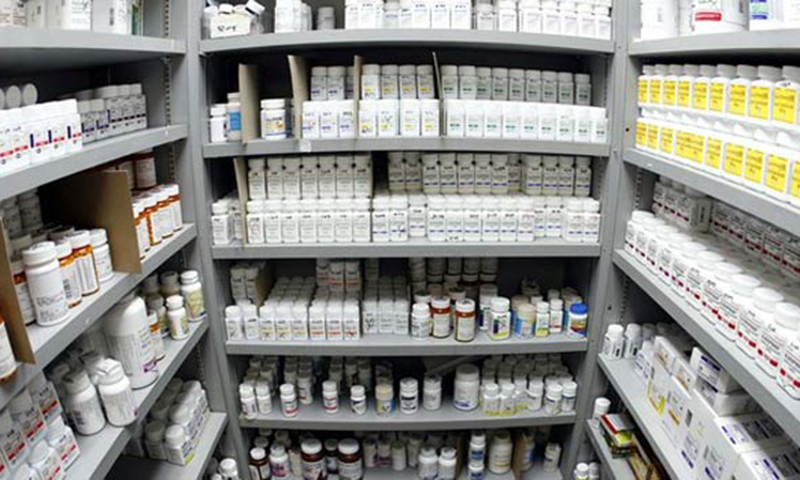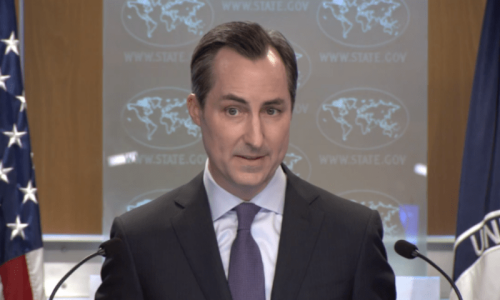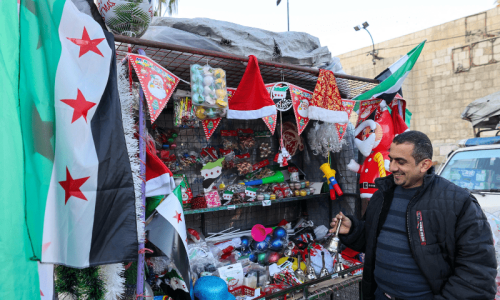Mohammad Rifique has seven children, and they tend to fall sick in the winter. They often catch coughs, sore throats or fevers but this year it is getting difficult, Mr Rifique said, to provide medicines for them.
“I’ve heard that antibiotics shouldn’t be used for such illnesses, but doctors have been prescribing my children antibiotics for since they were born. Now they don’t recover without them,” he explained.
“I used to buy the 70ml Augmentin suspension for Rs173, which is now being sold for Rs219. It has already become difficult to provide my children food, and now that prices have been increased it is also difficult to buy their medicines,” he said.
Mr Rifique is far from the only person affected by the rise in medicine prices. Abdul Hafeez said a pack of 500mg Ampiclox capsules - another antibiotics - is now being sold for Rs646, when it used to cost Rs616. The cost of 100 coated tablets of 250mg Erythrocin has risen from Rs540 to Rs921.
Mohammad Bilal, who runs a pharmacy, agreed that the rise in medicine prices has compounded the problems of patients and their relatives.
“A number of time, people just ask for enough medicine for one day, or leave after asking for the price,” he told Dawn.
A spokesperson for the Drug Regulatory Authority of Pakistan (Drap) announced this month that the maximum retail price (MRP) of various medications would be increased by 9pc to 15pc, and attributed the price hike to the 30pc increase in the US dollar last year.
The cost of raw and packaging material has also risen, Drap said, and the rise in utility costs such as electricity and gas has increased the manufacturing cost per unit.
The price increase was also blamed on the increase in additional duties and interest rates.
Citizens struggle to afford medicine after price hike
The authority claimed that most pharmaceutical raw material is imported from China, and with the Chinese industry closed for environmental reasons the price of raw material has doubled. Drap has said it is not viable for pharmaceutical companies to manufacture medicines, but assured that life-saving medicines would be available.
But a pharmacist who asked not to be named alleged that medicine prices were increased by the connivance of pharmaceutical companies and Drap.
“It’s true that the cost of raw material has increased because of the devaluation of the rupee, but there were still huge margins in medicines because of which the prices of medicines can be reduced further,” he said.
For instance, he explained, whenever government hospitals issue tenders for medication, pharmaceutical companies offer to provide medicines at rates five to 10 times below the market rate.
“Similarly, a number of companies get medicines manufactured by one company, which is called contract manufacturing. Because of this, the company manufacturers medicines for different companies with the same raw materials but with different price tags. One company sells the medication for Rs50, and the other sells the same medication for Rs500 because Drap fixes medicines’ prices.”
The pharmacist said Drap has stated on its own website that its records regarding prices are inauthentic, so there is a possibility that a number of companies are selling medicines at higher rates than those fixed by the authority.
He added that a lawyer has moved the Lahore High Court against the recent price increase, so the court may direct Drap to withdraw its decision to increase prices.
Drap has also called a meeting of the Drug Pricing Committee to increase pricesfurther at the end of this month, he said.
Pharma Bureau Executive Director Ayesha Tammy Haq told Dawn she has read the aforementioned petition and concluded that the petitioner has a lot of knowledge of the industry. However, she said, the court has only sought comments from the government.
“It is a fact that the devaluation of the rupee has increased the price of raw material. Although we wanted prices to be increased by 4pc, Drap decided to increase by 9pc to 15pc. However, prices should be increased further by the end of the financial year as per the consumer price index. The industry would not be able to survive if the increase was withdrawn,” she said.
Ms Haq said medicines in Pakistan are cheaper than neighbouring countries, and the most sold medicines are already inexpensive.
“Medicines that are sold at higher rates are hardly sold. The government should ensure that medicines do not vanish from the market.”
Drap spokesperson Akhtar Abbas said the prices of medicines were increased reasonably.
“One should realise that patients are our priority. We want to reduce medicine prices but at the same time, we have to ensure the availability of medicines in the market. Moreover, there are some orphan drugs and we cannot afford that companies stop manufacturing them because of non-viability,” he added.
He also said that pharmaceutical companies had demanded a 40pc increase, but the authority increased prices by 9pc to 15pc.
He said: “We need to understand that a number of multinational companies have left Pakistan because business was not viable for them.”
Mr Abbas also said there can be a difference in price for similar medications if they are registered at different times, as prices are increased from time to time.
When asked, he said the Drug Pricing Committee meeting would examine cases regarding the fixation of prices of new medicines and some hardship cases.
Published in Dawn, January 27th, 2019












































